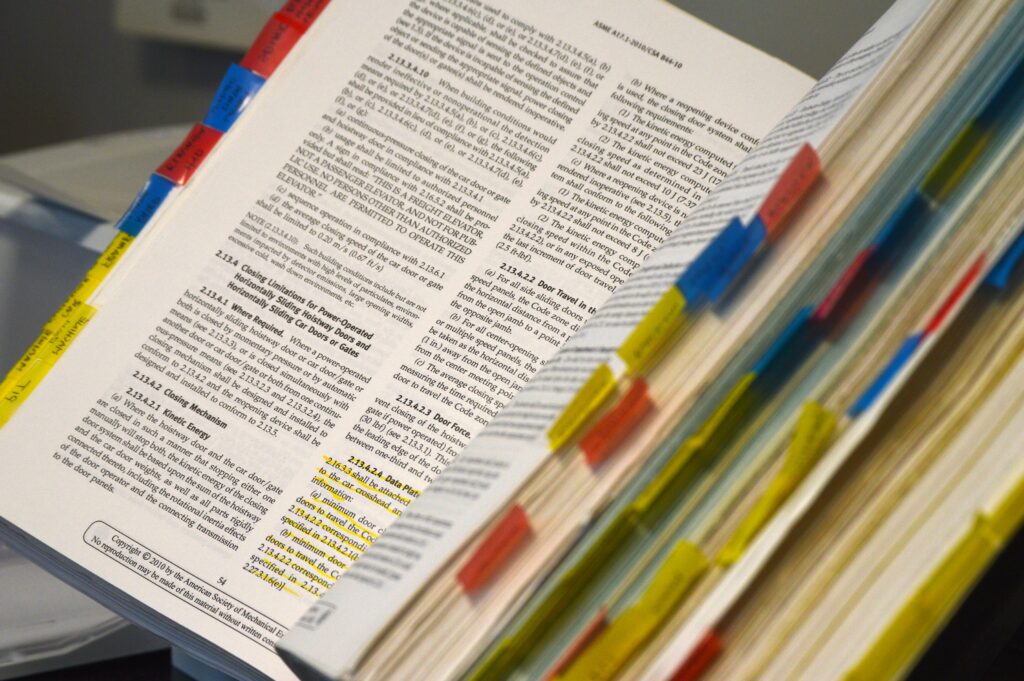Is it the right career for you?
Guest Writer Alexandra Duffy, Manager of Technical Publications at Vectorworks, Inc.
If you’re considering a career change, and you are interested in both technology and writing, read on to help discover if technical writing might be a good fit for you.
What do technical writers do?
When you buy a product, from a phone, to a car, to set of headphones, or even a new bookshelf that requires assembly, it usually comes with a manual, or a link to an online manual. Somebody wrote that manual!
Most technical writers work in the software industry. They help customers understand how to use all of the features of a program. They may also write internal documentation for a company, helping the software company’s own employees understand how to implement the code or proper programming procedures.
Other tech writers may work in factories to document processes and procedures, create manuals for industrial machinery or complex scientific instrumentation, or work in the military or aviation industry to create the documentation for everything from tanks to airplane parts. In some of these situations, top-secret clearance is required.
What kind of background is required?
Anyone who enjoys writing, has a firm grasp of proper grammar and spelling, and also has some aptitude for technological subject matters, can be a technical writer. Tech writers usually have a strong English or science background. While a degree or certificate in technical writing isn’t required, it is helpful.
To be able to write documentation, you need to be able to use the software program, run the machine, or put together that bookshelf, and understand in great detail what it is you are going to be documenting. You need to be aware of your audience, be able to take a complex concept, and break it down into simple, understandable steps that can be followed by your reader. Attention to detail and meticulous organizational skills are needed.
Not only do you need to learn the complexities of what you are documenting, but you also need to be knowledgeable in whatever program is used to create the documentation. Examples of these programs include Microsoft Word, Adobe FrameMaker, Adobe RoboHelp, Madcap Flare, and many others. If you are publishing manuals, you’ll need to learn about printing processes (this, of course, is becoming more rare, since most documentation is now online only). If you are creating online help, having knowledge in html/css can be very helpful; you’ll be designing the appearance of the help system.
A tech writer sometimes needs to obtain information from a busy or recalcitrant subject matter expert (SME). Being able to adapt to other peoples’ styles of communication is a good skill to have.

What are some great things about being a technical writer?
When you are a tech writer, you get to work with cutting-edge technology. The job can be very interesting and fulfilling, since you are helping customers understand how to use the technology they have purchased or need to use. You will learn about the company’s tech, but also you can expand that into learning about html/css and webpage design, advising colleagues about user interface (UI)/user experience (UX) design, proofreading marketing literature, or becoming an expert at using RoboHelp or Flare. Technical writers do more than “just” write.
Tech writers can often work remotely, which is great for work/life balance. The pay for tech writing is significantly higher than it is for other areas of writing. A general salary range is $75,000/yr for a beginning writer, to well into six figures for an experienced writer. The career can be a good fit for you if you are more introverted, don’t care about dressing up at the office, and prefer a casual working environment.
What are the drawbacks of technical writing?
When it comes to writing about technology, you need to be consistent, pay attention to detail, and avoid making mistakes that could cost your company. The work can, honestly, be rather boring. There is not a lot of creativity in this field. When you write about a procedure, and that procedure changes later, you may spend a lot of time redoing something that you thought was complete.
Deadlines are usually a factor in your work as a tech writer. The pressure to finish the documentation on time can be intense, especially when items are changing at the last minute.
Some SME’s may look down on the technical writer. There can be conflict between the engineering side of a company and the marketing side; sometimes the tech writing department can straddle both areas, and experiences this conflict firsthand.
Will I like technical writing?
Ask yourself whether you enjoy using various software programs and find it easy to learn a new one. Do you gravitate towards science/tech articles or news? Do you look at the manuals that arrive with a new product you’ve purchased, and try to learn everything about the new gadget? Do friends and family turn to you for help with setting up a new computer, phone, or router?
Give technical writing a try. Write down the procedure for tying your shoes, making a peanut butter sandwich, or pumping gas. Take a look at various software programs you own, and open their online help. What problems do you see with the help system? What could you do better? Try writing your own help about a feature, and compare what you wrote to the actual help. If these attempts go well and you are still interested in tech writing, find some open-source software that really does need a help system. For example, VLC Media Player is a commonly used open-source program that plays audio/video files. For years, their initial help page asked for assistance with writing the documentation. This is a good way to get started with actual technical writing.
If you don’t think technical writing is the career for you, also consider instructional design, coding, copy editing, or UI/UX design.* Best of luck to you with your career choice!
*Here is a link to an excellent article by Tatiana Vlahovic, Senior Product Researcher at Credit Karma, on becoming a UX researcher, one element of UI/UX design.
Featured Image Credit: Christin Hume on Unsplash
